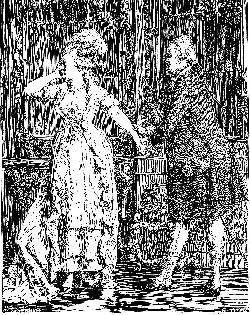
Go Back


So imagine now that you are in that world, more than two hundred years ago - the events of the French Revolution swirl around you. Hear the cry of the mob, the heat of the fire --
"I know the gutter and I know the stink of the street - kicked like a dog, I have spat out the bile of defeat"

1789: In an effort to quell the growing tensions, a gathering of
the Estates-General is called for. The Estates-General was a
representative body speaking for all three "estates" of France;
it had not been gathered in 175 years. While the King and the nobility
look upon the gathering as an opportunity to intimidate the poor, the
representatives of the Third Estate (including a young, charismatic lawyer
named Maximilien Robespierre) see it as their chance to finally have a
say in the governing of France, to abolish tyranny as the Americans have
done.
The delegates of the Third Estate are ignored, humiliated, and finally literally locked out in the rain when they declare that they are they are a National Assembly, the only true representatives of the people. To escape the downpour, the delegates duck into an indoor tennis court. There they take what becomes known as the Tennis Court Oath - they promise not to leave Versailles until a constitution is written to their satisfaction. The battle lines against the nobility are drawn.
Fearing insurrection, Louis orders the Estates-General to continue work on the constitution, while surrounding Paris and Versailles with troops. Paris is thrown into a panic. Mobs arm themselves with farm tools, pitchforks, and homemade spears.
July 14th: A mob descends upon the Bastille to get gunpowder. Although in disuse, and scheduled for demolition, the 400 year old military prison is seen as a symbol of ancient repression. A standoff between the growing mob and the governor of the prison collapses when members of the crowd scale the walls and open the gates. The prison soldiers panic and open fire with their cannon - dozens in the mob are killed. When the governor of the prison finally surrenders, he is dragged out and beheaded. The Revolution has begun and it has begun in blood.
Throughout the long hot summer, the Assembly tries to quell the passions of the mob while carving out a new government. In August, the foundations of feudal privilege are abolished; in a stroke, the power of the nobility is gone.
In October a mob of hungry women force the King and his family to leave their palace in Versailles and come to Paris. The King lodges at the Tuileries Palace in Paris. Many nobles flee France, sensing the turning of the tide.
1790: The Assembly is housed in an old riding school. With most of the nobility gone, the Moderates are in power. They want to follow the English model and form a constitutional monarchy. They sit in the center of the hall. To the right sit the Royalists, who grumble about going back to the old ways. To the left sit those who wanted a true democracy. Since then the terms "left" and "right" have always been labels for liberals and conservatives.
Paris is a hotbed of political intrigue: political groups called "clubs" gather throughout the city, in taverns and back-rooms. Robespierre helps form the Society of the Friends of the Constitution, or the Jacobin Club. The leader of the Society of the Friends of the People, or the Cordeliers is a burly, brawling lawyer named Georges Jacques Danton. These two charismatic men seem destined to lead the new order.
Website Copyright Policy